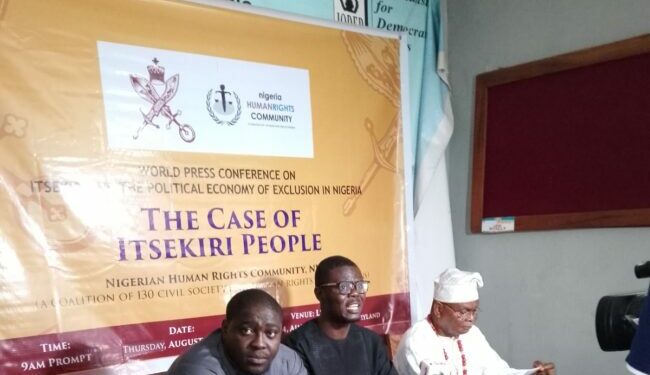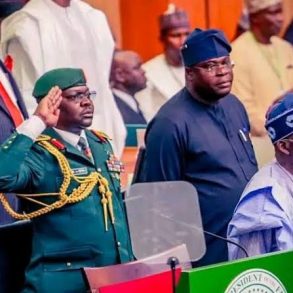By Tunde Adeleke
The Itsekiri ethnic nationality has pleaded with President Bola Tinubu to rescue her from criminal neglect and injustice.
The ethnic group which made the plea through the Nigerian Human Rights Community (NIHRCO) at a press briefing recently in Lagos decried what it called striking case of Exclusion of an ethnic community that contributed not less than 30 per cent of the nation’s oil resources, yet had been constantly and humiliatingly neglected by the successive governments since the Nigerian independence in 1960.
NIHRCO, a coalition of 121 civil society and community-based groups across the country argued that politics of exclusion and trampling underfoot of indigenous people, including the Itsekiri, had largely been responsible for the instability that had pervaded most parts of the Nigerian nation.
According to the group, the Itsekiri, from when the nation gained independence 63 years ago till date, had only produced two federal ministers, Chief Festus Okotie-Eboh, who was killed in the military putsch of 1966 and Dr. Roland Oritsejafor, who had a less than two years stint with Chief Olusegun Obasanjo as president.
A detailed analysis of political appointments at both federal and state levels in Delta State, NIHRCO further contended, showed that the Itsekiri ethnic nationality had been brazenly excluded from ministerial appointments, oil related ventures since 1959, top positions in the Niger Delta Development Commission, Amnesty Programme and head of major parastatals.
Other forms of marginalisation of the Itsekiri listed by the group included denial of top positions in oil companies, and distribution of top government positions, even at the state level.
NIHCO noted that out of the positions of governor, deputy governor, speaker, deputy speaker, secretary to the government and Chief of Staff, the Itsekiri who was one of the five major groups had none, whereas, two other ethnic groups had two each, adding that the Urhobo, who had the positions of governor and deputy speaker again clinched the two ministerial slots for the state.
The Itsekiri, a sub-ethnic group whose homeland is in today’s Delta State, are historically, culturally and linguistically related to the Yorùbá, who had stood firmly in support of progressive politics.
NIHRCO, while noting that President Tinubu had listening ears, believed he would again demonstrate his passion for justice, given his background as a humanist and pro-democracy activist, by addressing the long afflictions of a peace loving people committed to a united, strong and prosperous nation where liberty and justice reigned supreme.





